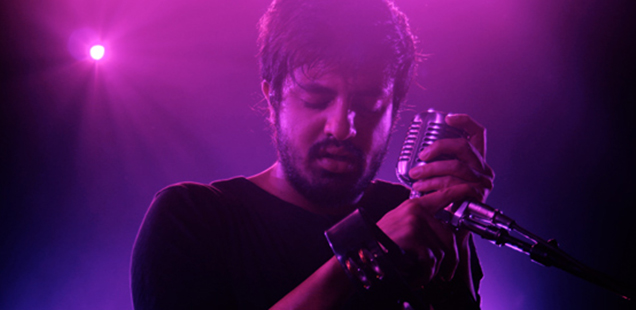Capsule Movie Reviews: Terri and Tabloid
A look at poignant outcast Drama, Terri, and Errol Morris’ latest documentary.
Terri
A Poignant Outcast Drama
Working from a screenplay written by novelist Patrick Dewitt (The Sister Brothers, Ablutions),  Azazel Jacobs doesn’t spoon-feed his audience with easy, simplistic explanations for and about title-character Terri.
Azazel Jacobs doesn’t spoon-feed his audience with easy, simplistic explanations for and about title-character Terri.
More than dialogue, observation reveals Terri’s lonely, isolated existence. At home, he plays caretaker to his elderly uncle, James (Creed Bratton). At school, no one dares to question his decision to attend school in his pajamas. They accept it as a fact of high-school life.
Terri’s continued drift into isolation and loneliness brings him to the attention of the school’s vice-principal, Mr. Fitzgerald (John C. Reilly), an unconventional educator and counselor. Fitzgerald seems capable of seeing beyond Terri as an “at-risk” teenager, maybe because he’s an all-around do-gooder, maybe because he wants to prevent Terri from turning to violence, or maybe because he sees something of himself in Terri.
Fitzgerald offers Terri the first real chance at a mentor figure, but like every other character in Jacobs’ film, he’s flawed. Terri’s slow, gradual emergence from his isolation becomes inextricably connected to Chada (Bridger Zadina), and Heather (Olivia Crocicchia), a once-popular-girl-turned-pariah.
Terri culminates in an extended scene centered on Terri, Chada, and Heather. The usual (and unusual) combination of sex, drugs, and alcohol leads to a series of revelations with the implicit threat of violence. Heather’s “real” motives toward Terri, again left for us to decipher, take Terri into raw, disturbingly uncomfortable territory. Jacobs imbues each line of dialogue with ambiguous, contradictory meaning, a testament to his skills as a writer and director and his willingness to trust his cast to handle weighty material and his audience to remain emotionally engaged in the ultimate outcome.
Rating: 4 out of 5 stars.
Tabloid
Errol Morris Strikes Again
In his latest documentary, Tabloid, Errol Morris (The Thin Blue Line, The Fog of War) focuses on Joyce McKinney, a one-time Miss Wyoming and her involvement in the so-called “Manacled Mormon Kidnapping” that became, if only for a few short months in late 1977 and early 1978, tabloid fodder in the UK , where McKinney’s former boyfriend, Kirk Anderson lived to fulfill the Mormon Church’s two-year missionary obligation. From Los Angeles, McKinney planned an elaborate operation, hiring a pilot, Jackson Shaw, a bodyguard, and convincing a longtime friend, Keith Joseph (one among many men besotted with the buxom, manipulative McKinney), to join her.
Three days after kidnapping Anderson at gunpoint outside a Mormon temple, she let him go. The British police arrested McKinney and Joseph. The British tabloids took an already odd, bizarre story and made it more lurid and sensationalistic, focusing on the handcuffs and ropes McKinney used to imprison Anderson, presumably against his will. McKinney’s story doesn’t end with her prosecution for false imprisonment, kidnapping, and rape (she tried to deprogram him with sex), but with McKinney and Joseph’s flight and escape using false passports and outlandish costumes (they joined a group of deaf-mute travelers) weeks before their trial was set to start (they were out on bail).
Through a long-form interview with McKinney and shorter interviews with key players, Morris fills in McKinney’s general backstory. He also, however, offers a devastating counter-narrative that contradicts McKinney’s sanitized version of the events leading to and from Anderson’s kidnapping and subsequent arrest, prosecution, return to the United States. McKinney parlayed that notoriety into selling exclusive story rights to The Daily Express for 40,000 British pounds, TV appearances, and clubbing with movie stars and celebrities. Morris, however, doesn’t stop there, focusing on McKinney’s recent reappearance in the public spotlight when she was connected with the cloning of a beloved dog.
Gavin’s revelations, derived from on-the-ground research into McKinney’s life in Los Angeles (where she claimed employment as a model) prove the most damaging to McKinney’s credibility, but as with all of Morris’ character studies, he’s less interested in verifiable, objective truth than in the truths his subjects create for themselves. Whether you call it self-delusion, willful blindness, or reality distortion, McKinney, is a fascinating, compelling case study in the lengths an individual will take to justify even the most harmful decision.
Rating: 4 out of 5 Stars.





